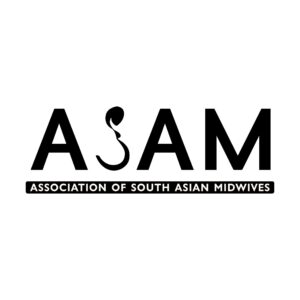[ad_1]
The next blog in our series which focuses on maternal inequalities comes from Nafiza Anwar, one of the founders of the Association of South Asian Midwives and highlights how the group are actively working to drive change.
 In the vibrant tapestry of South Asian cultures, traditional practices, and deeply rooted taboos, a powerful force is emerging to reshape maternity care and advocate for the rights of women and birthing individuals from the global majority. The Association of South Asian Midwives (ASAM) actively engages in dispelling stereotypes associated with South Asian communities. Stereotypes can perpetuate misconceptions about childbirth practices [1]. ASAM, through community outreach and educational initiatives, strives to correct these misperceptions and foster a more nuanced understanding of the diverse South Asian cultures. ASAM stands at the forefront of this movement, challenging stereotypes, dispelling myths, and working towards increased representation of South Asian midwives in the healthcare workforce.
In the vibrant tapestry of South Asian cultures, traditional practices, and deeply rooted taboos, a powerful force is emerging to reshape maternity care and advocate for the rights of women and birthing individuals from the global majority. The Association of South Asian Midwives (ASAM) actively engages in dispelling stereotypes associated with South Asian communities. Stereotypes can perpetuate misconceptions about childbirth practices [1]. ASAM, through community outreach and educational initiatives, strives to correct these misperceptions and foster a more nuanced understanding of the diverse South Asian cultures. ASAM stands at the forefront of this movement, challenging stereotypes, dispelling myths, and working towards increased representation of South Asian midwives in the healthcare workforce.
One of ASAM’s key missions is to engage in open and honest conversations about taboos surrounding childbirth, navigating through cultural intricacies, and redefining traditional practices. It is assumed that Asian women are demanding and always complaining and often referred to as ‘Asian princesses’ [1]. This misconception has dire consequences for many South Asian women accessing maternity services leading to poor outcomes for mother and baby. ASAM combats these misconceptions through community outreach and educational initiatives, ensuring a more nuanced understanding of South Asian cultures and childbirth practices. Care is fragmented and often red flags get missed and opportunities get missed to provide timely and appropriate care. Women are not listened to and are left feeling dismissed and undervalued [1]. This consequently breaks down trust around healthcare services, which leads to access to care in the future.
The association acts as a bridge between modern healthcare practices and deeply rooted cultural beliefs, recognising the importance of preserving cultural identity while ensuring safe and equitable maternity care. ASAM facilitates dialogues informed by research that emphasises the importance of culturally competent healthcare providers in improving maternal health among South Asian women in the UK [2]. This helps to create a bridge between modern healthcare practices and deeply rooted cultural beliefs [3].
South Asian midwives face unique challenges gaining representation in the healthcare workforce [4]. Through mentorship programs, scholarships, and partnerships with educational institutions, ASAM actively works towards increasing the number of South Asian midwives. These initiatives aim to create a workforce that reflects the diversity of the communities it serves and is paving the way for aspiring midwives to enter the field fostering a diverse and culturally sensitive healthcare environment.
Being change agents in the healthcare sector comes with its unique set of challenges. By understanding the barriers, including cultural resistance and institutional biases, ASAM strategically navigates these obstacles, fostering change through persistent advocacy and education.
ASAM recognises the disparities in maternity care and is at the forefront of advocating for policies that ensure equitable and safe maternity care for women and birthing individuals from the global majority. Research findings from organisations like the World Health Organisation (WHO) and UNICEF strengthen ASAM’s advocacy efforts [5]. By collaborating with policymakers, engaging in policy research, and participating in international forums, ASAM influences systemic changes that prioritise the well-being of diverse communities during pregnancy and childbirth. Through collaboration, ASAM is influencing systemic changes to ensure that every individual receives dignified and culturally competent care during pregnancy and childbirth.
Extending beyond rhetoric, ASAM is actively influencing best practices in maternity care. ASAM has become a recognized platform within the maternity care forum, influencing best practices and policies. ASAM’s dedication to inclusivity and cultural competency is reshaping the narrative and establishing the organisation as a driving force for positive change.
In conclusion, the Association of South Asian Midwives is not just a professional organisation; it is a catalyst for transformative change in maternity care. By challenging stereotypes, addressing taboos, and advocating for increased representation, ASAM is paving the way for a future where every woman and birthing individual receives equitable, safe, and culturally sensitive care. As change agents, the members of ASAM are shaping the narrative and fostering a healthcare environment that respects and celebrates the diversity of South Asian cultures.
ASAM Directors – contact@asamidwives.co.uk
@nafiza_anwar
@midwivesASAM
References:
- Birthrights (2022) Systemic Racism, not Broken Bodies : Inquiry into Racial Injustice in Maternity Care, Protecting Human Rights in Childbirth Available at: Birthrights-inquiry-systemic-racism_exec-summary_May-22-web.pdf
- Feldman, R, What price Safe Motherhood? For NHS Charging Maternity Care in England and its Impact on Migrant Women. London . Maternity Action 2018 Available from: October-1.pdf (maternityaction.org.uk)
- Higginbottom, G, Hadziabdic, E, Yohani, S, Paton, P, (2014) Immigrant women’s experience of maternity services in Canada: a meta- ethnography, Midwifery May 2014; 30(5): 544-59
- Ali N, Qureshi I, Sidika T, Mondokova A, Mahmood S, Jan A, Garcia R Cook E, Burden B, Reid C, Randhawa G, Barriers and Enablers for UK ‘Home Grown’ South Asian Prospective Students Choosing Nursing and Midwifery Courses and Careers Diversity and Equality in Health and Care (2018) 15(4): 190-197 https://oro.open.ac.uk/66550/1/barriers-and-enablers-for-uk-home-grown-south-asian-prospective-students-choosing-nursing-and-midwifery-courses-and-careers.pdf
- World Health Organization. (2018). WHO recommendations: intrapartum care for a positive childbirth experience. Geneva: World Health Organization; 2018 Retrieved from https://www.who.int/reproductivehealth/publications/intrapartum-care-guidelines/en/
To view other blogs in this series please see:
(Visited 5 times, 5 visits today)
[ad_2]
Source link
